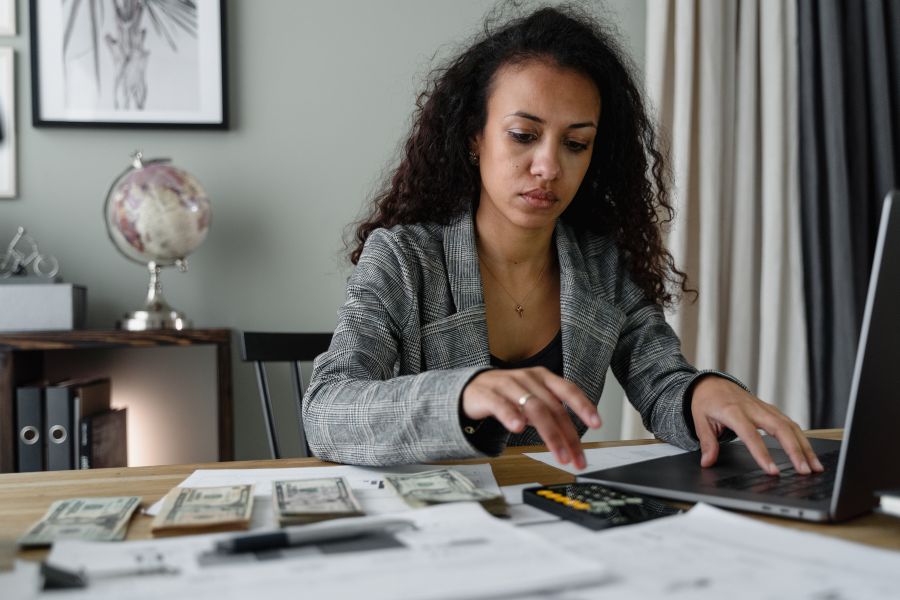Money was always tight in my house when I was a kid. Every decision felt like a puzzle to stretch a few dollars further, and I’d watch my parents sit at the kitchen table, heads bowed, worrying about bills that never seemed to end. Those early days left marks—some good, some not so much—that still show up in how I handle money now.
The financial habits I picked up during those years of scarcity? They’re still with me, for better or worse. I got pretty skilled at extreme frugality, but I also learned to hoard money out of fear. Even now, I sometimes wonder which money habits actually help me and which ones hold me back from building real wealth.

Turns out, growing up poor sticks with you in ways you might not expect. The way I think about money—how I save, spend, or even dream about the future—comes from those tough years. It’s been a journey to spot these patterns and start changing them. Maybe if you grew up with financial stress, you’ll recognize some of these stories and get inspired to tweak your own money mindset.
Key Takeaways
- Childhood poverty leaves money habits that can help or hurt your future.
- Patterns like extreme frugality, fear of debt, and guilt over spending on yourself are common.
- You can change these habits by spotting them and taking steps toward healthier money behaviors.
Lasting Effects Of Growing Up Poor On Money Habits
Growing up broke shaped my thoughts and actions around money, and honestly, those patterns are tough to shake. From how I shop to how I plan for the future, those early lessons still show up.
Scarcity Mindset And Financial Hardship
That constant worry about “not enough” money? It seeps in deep. As a kid, I watched my parents stress over bills and groceries. I learned fast that money could vanish overnight.
Even now, with a steady paycheck, I sometimes feel like it’s all about to disappear. I buy things I don’t even need, just because they’re on sale. My brain whispers, “Grab it now or you’ll miss out.”
This scarcity mindset shows up when I:
- Panic about spending on anything beyond basics
- Hoard cash instead of investing
- Rush to spend when a little extra comes in
- Feel guilty for treating myself
Having money doesn’t erase those feelings. The fear runs deeper than any savings account.
Learning Resilience And Frugality Early
Not having much money forced me to get creative. I learned to make things last and solve problems without spending.
Stretching every dollar became a superpower. Hand-me-downs, off-brand groceries, and home-cooked meals were just how we lived. Now, these habits help me save even when I don’t have to.
Money-saving tricks I still use:
- Hunting for deals and comparing prices everywhere
- Fixing stuff instead of tossing it
- Cooking with whatever’s already in the fridge
- Finding free or cheap ways to have fun
But sometimes, I go overboard. I skip things I actually need or avoid spending on stuff that could make life better. It takes practice to find the sweet spot between smart saving and healthy spending.
Impact Of Childhood Poverty On Adult Decisions
The financial stress from my childhood? It still shapes my choices. I focus on immediate needs, not long-term plans. Growing up poor taught me to survive day by day.
Investing feels risky. Locking money away goes against everything I learned about always needing cash for emergencies. That makes it harder to build wealth over time.

Even my job choices reflect this mindset. I pick steady paychecks over growth opportunities. The urge to earn right now sometimes makes me miss out on bigger rewards later.
Some patterns I notice:
- Avoiding debt, even when it could help (like mortgages)
- Picking stable jobs over riskier, higher-paying ones
- Not trusting financial advisors or investment platforms
- Letting too much money sit in low-interest savings
These choices made sense when every dollar counted. Now, I’m learning to make decisions that actually move me forward.
Key Money Habits Developed In Childhood
I picked up some money habits as a kid that became second nature—like tracking every penny and refusing to waste anything. These behaviors got us through hard times, but they also shaped how I see risk and resourcefulness today.
Budgeting To The Penny
Before I even knew what budgeting meant, I watched my mom count out bills with a calculator and a battered notebook.
She’d separate cash into envelopes—”rent,” “food,” “gas.” Every cent had a job.
That habit stuck. Even now, I know exactly what I spent on coffee last month. I still use envelopes for some expenses.
I track my spending down to the dollar and plan purchases weeks out. It gives me stability, but sometimes, I stress over the tiniest amounts.
That penny-pinching helped me avoid debt in college. While friends swiped credit cards, I calculated every purchase against my part-time wages.
Avoiding Waste And Prioritizing Needs
Nothing got tossed in our house. Leftovers lasted until they were gone, and we fixed things instead of buying new.
We shopped sales, clipped coupons, bought generic brands, and only splurged on true needs.
Even now, I feel weird buying name-brand stuff. My first instinct is to find the cheapest option, even when I could afford better.
Avoiding waste helps with saving. I use things until they fall apart, compare prices like a hawk, and wait for sales on big-ticket items.
But sometimes, I take it too far. I’ve worn shoes with holes just because they were “still good.” Learning when to spend for quality? Still working on that.
Reluctance To Take Financial Risks
Money disappeared fast when I was a kid—unexpected car repairs or medical bills could wipe us out.
Safe choices seemed like the only choices. Investing looked like gambling when we barely scraped by.

Now, I’m super cautious. I keep big emergency funds and avoided the stock market for years. I chose steady jobs over higher-paying but less certain gigs.
That caution protected me sometimes. But it also meant missing out on growth and wealth-building.
I’m trying to break that pattern by taking small, calculated risks. Investing a little at a time helps me get used to the ups and downs.
Embracing DIY And Resourcefulness
Being broke meant we had to get resourceful. We fixed our own cars, cut our own hair, and patched up clothes instead of buying new.
My dad showed me how to do basic home repairs with borrowed tools. We stretched the life of everything we owned.
That resourcefulness turned into a money-saving superpower. I handle most repairs myself and research before hiring anyone.
DIY skills have saved me thousands. I’ve renovated rooms, fixed appliances, and kept my car running without pricey service calls.
Sometimes, though, I spend too much time on projects that a pro could do faster. It’s a balancing act—save money, but don’t waste precious hours.
Common Financial Mistakes And How They Manifest
Growing up poor led to certain financial mistakes that followed me into adulthood. These patterns showed up as credit card debt, impulse spending, and a stubborn fear of investing.
Struggles With Credit Card Debt
When I first got a credit card, I treated it like free money. Nobody explained interest rates or minimum payments.
My biggest credit card blunders:
- Maxing out cards just to get by
- Only making minimum payments
- Opening new cards to pay off old ones
- Using cash advances for emergencies
Debt piled up fast. A $500 purchase ballooned to $800 with interest and fees.
I didn’t get how compound interest worked against me. Every month, more of my payment went to interest.
Here’s what helped me break the cycle:
- Learning about APR and fees
- Making a debt payoff plan
- Cutting up cards for a while
- Building an emergency fund
Credit cards aren’t backup plans. They’re tools, and you have to manage them carefully.
Impulse Buying And Emotional Spending
When I had money, it always felt temporary. I’d spend it fast, afraid it would disappear.

Impulse buys I fell for:
- Clothes on sale (even if I didn’t need them)
- Gadgets after payday
- Pricey food when stressed
- Gifts I couldn’t really afford
Shopping made me feel normal, at least for a bit. Buying something new gave me a quick mood boost.
That scarcity mindset made me grab deals without thinking. If something was on sale, I thought, “I better get it now.”
Triggers for emotional spending:
- Feeling left out
- Work or bill stress
- Seeing others with nice stuff
- Extra cash from somewhere unexpected
Now, I use a 24-hour rule for non-essentials. Just waiting a day helps me think before I buy.
Fear Of Investing Or Lack Of Planning
Investing? I thought that was just for rich people. I figured you needed thousands to start.
The stock market looked like a gamble. Growing up poor made me terrified of losing any money.
My investing fears were:
- Losing everything
- Not understanding the basics
- Thinking I didn’t have enough to start
- Believing it was too risky
I kept my money in low-interest savings accounts. Safe, but not growing.
Planning ahead was tough because:
- I focused on right now
- Future goals felt out of reach
- I didn’t know much about finance
- Emergencies always popped up
Learning about index funds and compound interest changed things for me. I started with $25 a month, just to see what happened.
Turns out, not investing is riskier than investing. Inflation eats away at savings sitting in the bank.
How I’m Changing My Money Habits For The Better
Breaking those old patterns is hard work, but I’ve found ways to build real stability—while keeping the good lessons from my past. These changes help me save more, spend smarter, and feel better about my money choices.
Building Financial Stability Through New Strategies
I set up systems that keep me on track, even when I’m stressed. Building an emergency fund came first. It stops me from panicking when surprise bills hit.

Now, I use the 50/30/20 rule:
- 50% goes to needs like rent and groceries
- 30% covers wants, like eating out
- 20% goes to savings and debt
This simple split lets me save without feeling deprived. I opened a high-yield savings account so my money actually grows.
I track every dollar with a budgeting app. Seeing where my money goes each month helps me make better choices.
Automatic transfers move money to savings before I can spend it. I treat savings like a bill I have to pay. That removes the temptation to skip saving when things feel tight.
Developing A Positive Mindset About Money
Changing my thoughts about money was even harder than changing my spending. I had to swap fear for confidence.
I stopped seeing money as something that slips away. Now, I look at it as a tool to build the life I want. That shift gives me more control.
I use daily affirmations:
- “I deserve financial stability.”
- “Money flows to me easily.”
- “I make smart money decisions.”
I celebrate little wins—like saving $50 or paying off a credit card. Each victory builds confidence and proves I can handle money.
When old fears creep in, I remind myself of my progress. Watching my savings grow tells me the scarcity mindset doesn’t fit my life anymore.
Practicing Budgeting And Mindful Saving
Budgeting, for me, is all about awareness—not restriction. I jot down every single purchase for a month, just to see where my money actually goes. Honestly, it’s always a bit eye-opening.
Whenever I consider buying something over $50, I try the 24-hour rule. I wait a day before pulling the trigger. More often than not, the urge fades, and I realize I didn’t need it after all.
Here are a few mindful saving tricks that work for me:
- I round up purchases to the next dollar and save the difference.
- Whenever I get a tax refund or bonus, I stash it away before I can even think about spending it.
- Using cash for fun money? It really helps keep spending in check.
- I take a hard look at my subscriptions every month—there’s always one I can cancel.
Setting specific savings goals with real deadlines makes all the difference. Instead of a vague “emergency fund,” I’ll save for something like “$3,000 for car repairs by December.” It feels way more doable.
Groceries? That’s where I pay the most attention. Food costs sneak up on you, so I meal plan, use coupons, and grab generic brands. No shame in saving a few bucks on pasta sauce.
Fostering Empathy While Breaking The Cycle
Growing up without much money left a mark. It taught me empathy for anyone struggling to make ends meet. I try to hold on to that compassion, even as I work toward a more secure future.

I spend time volunteering at local food banks. It keeps me grounded and reminds me what really matters. Even as my finances improve, I don’t want to lose sight of those values.
Here’s how I try to keep empathy front and center:
- I don’t judge people for how they spend their money.
- If a friend’s having a tough time, I’ll share money-saving tips—if they want them.
- I donate to charities that support low-income families whenever I can.
- I remind myself: everyone’s financial story is different.
When it comes to my kids, I teach them about money in ways they can actually understand. They’re learning that money matters, but it doesn’t define who you are.
Breaking those old, inherited money habits isn’t easy. Sometimes I slip up, but I try to forgive myself and just focus on making better choices next time.
I want financial stability, but not at the cost of losing my compassion. Money should make life a little easier—for me and for the people I care about.
Frequently Asked Questions
Growing up with less shapes your money habits for life. It affects everything from how you spend on groceries to whether you’ll ever invest in the stock market. Here are some of the most common questions I get about childhood money struggles—and what I’ve learned along the way.
What daily financial habits can lead to long-term financial stability?
Tracking every expense is a game-changer. When I write down what I spend, I notice patterns and start catching those little leaks.
Paying myself first? It’s honestly the only way I save. I set up automatic transfers, so my savings grows before I even get a chance to spend it.
Cooking at home saves me hundreds every month. I plan meals around what’s on sale and stick to generic brands for basics.
Using cash for fun money helps me avoid overspending. When the wallet’s empty, that’s it—no more takeout until payday.
How can childhood socio-economic circumstances influence adult spending patterns?
Growing up with less, I bought cheap stuff that broke fast. I thought saving money meant always buying the lowest price, even when quality mattered more.
Sometimes, I’d either hold onto every penny or blow it all in a burst of guilt-driven spending. It was hard to find a balance.
I saw expensive purchases as wasteful or even reckless. That mindset kept me from investing in things that could actually help me earn more later.
Money and social situations could get awkward. I’d skip dinners out just to avoid looking cheap or overspending.
In what ways can one overcome a scarcity mindset developed from a low-income upbringing?
To fight scarcity thinking, I list three things I’m grateful for every day. It sounds simple, but it really helps shift my focus.
Setting small, realistic financial goals builds my confidence. Each win proves I can manage my money well.
I try to challenge old money fears by asking myself if they’re still true. Most of the time, they’re just echoes from childhood.
Learning about things like compound interest made me realize money isn’t just something to hoard or fear. It can actually work for me now.
What are effective strategies for budgeting and saving learned from past economic hardships?
The envelope method is old-school, but it works. I put cash in labeled envelopes for spending categories, and when it’s gone, it’s gone.
I toss loose change and small bills into jars. Over a year, it adds up—sometimes $200 or more—without any real sacrifice.
Shopping sales and sticking to generic brands can slash my grocery bill by about 30%. Childhood taught me to separate wants from needs, and it still helps.
That 24-hour rule for big purchases? It’s saved me from so many impulse buys.
How does early exposure to financial struggle impact risk-taking and investment behaviors in adulthood?
I used to be terrified of losing money, so I avoided investing for years. Savings accounts felt safer, even if they earned next to nothing.
I wouldn’t touch debt—not even the “good” kind like mortgages. That meant missing out on buying a home when prices were actually reasonable.
Taking even small financial risks felt scary. Poverty had taught me that one mistake could be a disaster. I had to learn that some risks are actually worth it.
Eventually, I started investing small amounts, just $25 a month. It helped me get used to the ups and downs, and I finally started to see money as something I could grow, not just protect.
What personal finance lessons can be drawn from experiences of growing up with limited resources?
When you grow up with not much cash, you start to spot the difference between needs and wants without even thinking about it. Trust me, that habit sticks with you and makes it way easier to skip pointless purchases
I remember learning to fix stuff instead of tossing it out right away. These days, I still patch things up before spending money on replacements—it’s honestly a game-changer for my wallet and the planet.
Back then, leaning on neighbors and sharing resources was just part of life. Now, I still join buy-nothing groups and tool libraries. It’s amazing how much you can save (and how many cool people you meet) by swapping or borrowing instead of buying.
Finding joy in the simple things became second nature. I get just as much happiness from a long hike or a picnic as I do from anything pricey. Turns out, you really don’t have to spend a ton to enjoy life.


